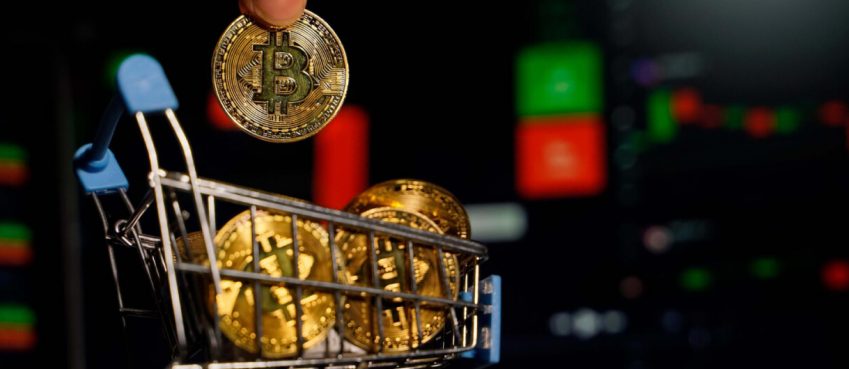
Blockchain. The technology, that is not at all a new technology, but still, it is conquering many industries towards its lateral.
The evolution of blockchain technology is being a revolution nowadays. Due to its bright fortune, many numbers of blockchain products are presented by industry experts and tech enthusiasts each day.
Initially, Blockchain technology had been the underpinning technology to ensure secure bitcoin transactions. As the year forge ahead, the blockchain technology is getting more advanced.
However, people may ask and clarify their questions about blockchain on forums or in comments, but still, they having an indecipherable inquiry. To Straighten all your doubt here we have defined some of the basic Blockchain FAQ.
1. What Is Blockchain?
Blockchain a public ledger or a distributed database of all bitcoin transactions. It is an open-source technology, information is immutable and anyone can access the details at any time. As Blockchain is a distributed ledger, there will be no control or central authority of records stored.
Anyone in the network can add the data and cannot be deleted or altered further. Usually, the blockchain stores the data in terms of blocks, and those blocks are linked together like a chain and will be encrypted for security. To validate the transaction here Blockchain uses Proof of Work Mechanism.
Also read: 7 Best Woocommerce Plugins to boost your Store you must know2. How Blockchain Can Be Used In Businesses?
By eliminating the middleman, Blockchain permits the secure sharing of business processes like business activities, records and contracts between firms and partners in an encrypted manner. Blockchain Uses cryptography principle to store the data which are impossible to hack, duplicate and misuse.
The Transactions will be done on multiple computers in a chain, hence the records are very difficult to alter.
Read More about: What is Blockchain!!
3. What Kind of Data Can Blockchain Store?
Blockchain is a Distributed database that maintains the details of each transaction in a series of blocks and those transactions will be added to the ledger in chronological order. The Stored transaction details in a block called genesis block.
Normally a block consists of
previous hash(I.e hash of the previous block),
data(I.e sender address,receiver address,transaction amount);
hash(I.e like a unique digital fingerprint)
nonce(I.e Random value)
Also read: Bobbie Formula Reviews 2025 (Read Before You Buy)
4. What are the Types of Blockchain?
1. Public Blockchain – It is a decentralized Open Source platform where anyone who has the internet connection can become a part of the blockchain network and can access current and past records and verify transactions. The purpose of a public blockchain is for mining and cryptocurrency exchanging.
Example: Bitcoin, Ethereum
2. Private Blockchain – It is a centralized platform with some restrictions and permissions to join the network. These Blockchains are usually used within an enterprise and organization. The purpose of private Blockchain is voting, supply chain management, digital identity, asset ownership, etc.
Example: Hyperledger, Corda
3. Hybrid Blockchain – It is a combination of both public and private blockchain. This Hybrid Blockchain gives businesses the flexibility to choose what data they want to make public and what data to keep private
5. Is it Possible to Create a Separate Blockchain For a Business?
Of course, it is possible. Even Though the public blockchain is open source, we can’t use it to store private records of a business or organization. So, we can leverage the open-source characteristics of the blockchain to build a private blockchain, and after the customization, A business can utilize it to store confidential business data.
Also read: Caktus AI Review: Is It The Best AI Helper For Students? (Complete Guide)
6. What is BaaS?
Baas – Blockchain as a Service. Nowadays technology is being available as a rental, similar to that Blockchain-as-a-service gives the enterprises the ability to rent blockchain infrastructure in the cloud.
In Detail, the software and hardware required to run blockchain applications are completely provisioned, managed and hosted by the service provider. The Baas partner can build the blockchain network on any blockchain platform such as Ethereum, Hyperledger Fabric, Corda, Bitcoin, Chain Core, BlockApps or Quorum.
Top 10 News
-
01
Top 10 Deep Learning Multimodal Models & Their Uses
Tuesday August 12, 2025
-
02
10 Google AI Mode Facts That Every SEOs Should Know (And Wha...
Friday July 4, 2025
-
03
Top 10 visionOS 26 Features & Announcement (With Video)
Thursday June 12, 2025
-
04
Top 10 Veo 3 AI Video Generators in 2025 (Compared & Te...
Tuesday June 10, 2025
-
05
Top 10 AI GPUs That Can Increase Work Productivity By 30% (W...
Wednesday May 28, 2025
-
06
[10 BEST] AI Influencer Generator Apps Trending Right Now
Monday March 17, 2025
-
07
The 10 Best Companies Providing Electric Fencing For Busines...
Tuesday March 11, 2025
-
08
Top 10 Social Security Fairness Act Benefits In 2025
Wednesday March 5, 2025
-
09
Top 10 AI Infrastructure Companies In The World
Tuesday February 11, 2025
-
10
What Are Top 10 Blood Thinners To Minimize Heart Disease?
Wednesday January 22, 2025







